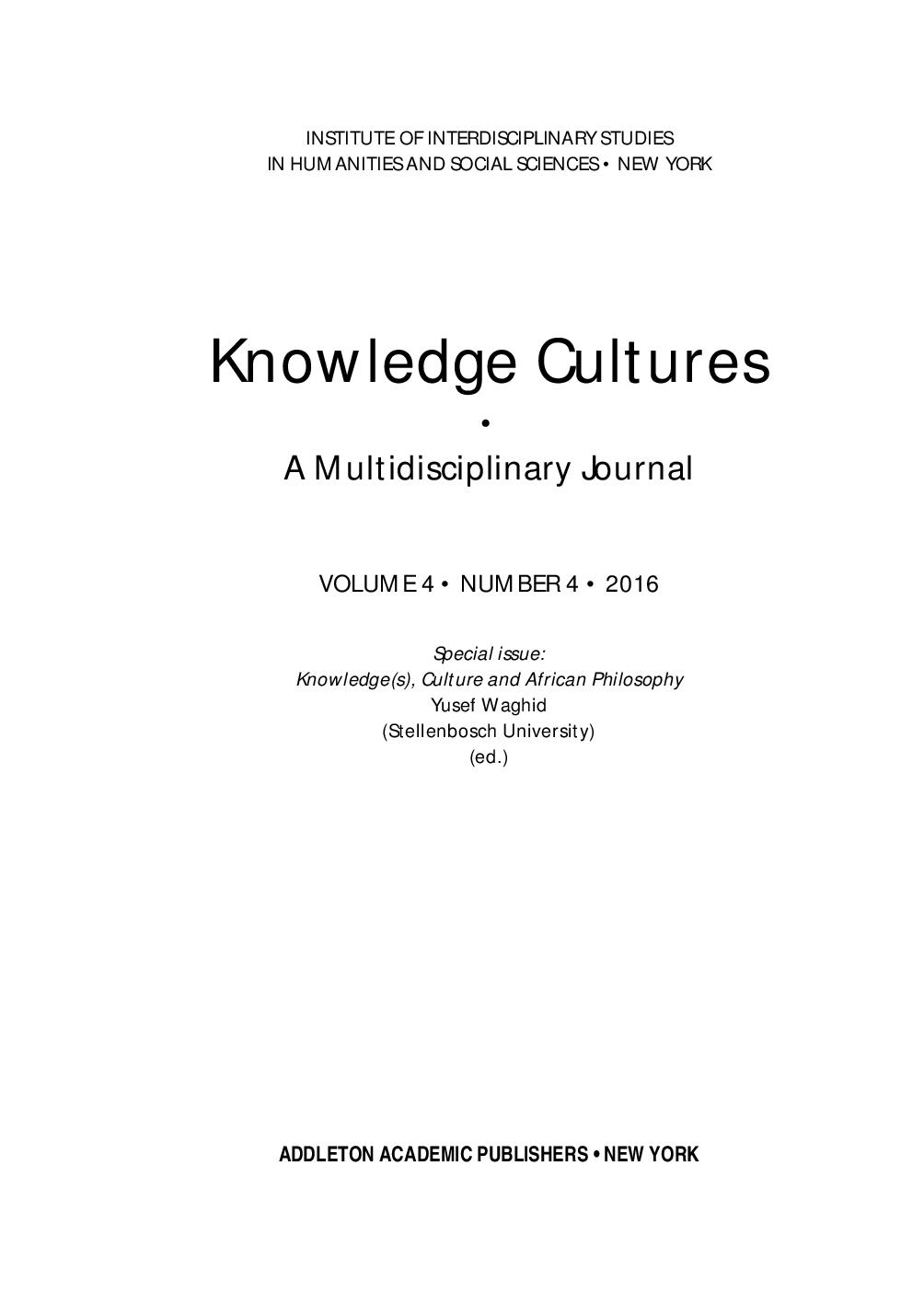THE MAKING OF CULTURE AND DEFINITION OF CULTURAL SPHERES AND BOUNDARIES IN POST-COLONIAL AFRICA: THE ROLE OF EDUCATION IN ACQUIRING AND EXERCISING AGENCY
THE MAKING OF CULTURE AND DEFINITION OF CULTURAL SPHERES AND BOUNDARIES IN POST-COLONIAL AFRICA: THE ROLE OF EDUCATION IN ACQUIRING AND EXERCISING AGENCY
Author(s): N’dri T. Assié-LumumbaSubject(s): School education, State/Government and Education, Sociology of Education
Published by: Addleton Academic Publishers
Keywords: agency; authenticity; civilization; culture; education; legitimacy; tradition;
Summary/Abstract: In the post-colonial African context, cultural relevance and legitimacy are viewed as the foundation of individual and group actions and public policy, as well as a compass for what is wrong, acceptable, or recommended. Indeed, beyond individuals and groups, entire state policies of various regimes at different moments in their respective post-colonial histories have used variations of cultural relevance in articulating, for instance, the notion of cultural “authenticity” to formulate public policy and regulate the lives of citizens. From the 1960s to the 1980s, among the most notorious cases were the episodes in the Congo/Zaïre, Togo and Chad (Adelman, 1975; Dingammandji, 2007), for instance, where the dictatorial political leadership proclaimed a state policy of authenticity. The authenticity arguments generally have been articulated in binary and mutually exclusive terms. In contrast to the Eurocentric intellectual positions and colonial policies that considered African societies as backward, “pre-logical,” “primitive”, as well as static traditional societies, the proponents of African authenticity presented the African societies as being of equal or superior value to European/Western societies. Ironically, the promoters of authenticity, who had the platform to advance their ideas and implement policies of endogenous “real” and “authentic” culture, have been the products of European formal education systems. Even the most Francophile African presidents, who had been subjected to French assimilationist colonial policy and education, argued for the need to rescue African culture through higher education, which is a product of the colonial heritage. African leaders have articulated cultural rediscovery as one of the instruments for nation building.
Journal: Knowledge Cultures
- Issue Year: 4/2016
- Issue No: 04
- Page Range: 18-32
- Page Count: 15
- Language: English
- Content File-PDF

